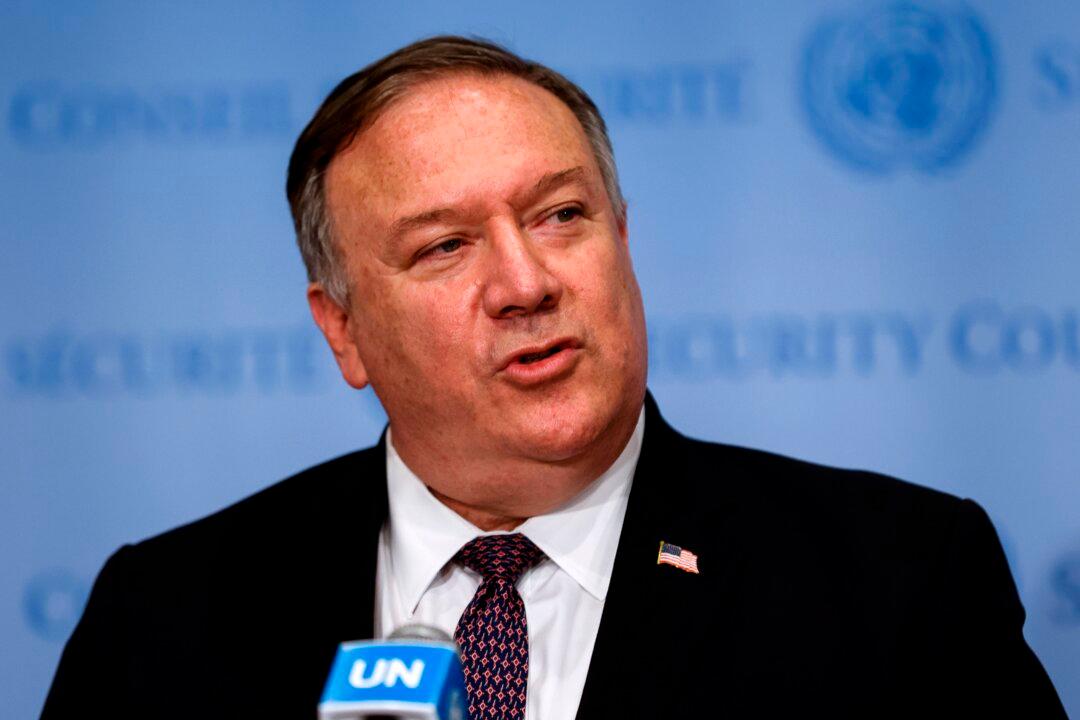U.S. Secretary of State Mike Pompeo on Sept. 20 responded to recent criticisms that he is “overtly religious” in his role as America’s most senior diplomat.
Speaking from Prestonwood Baptist Church in Plano, Texas, Pompeo, who has spoken openly about his Christian faith, stressed the importance of faith in the United States, and the role it plays in his job.





